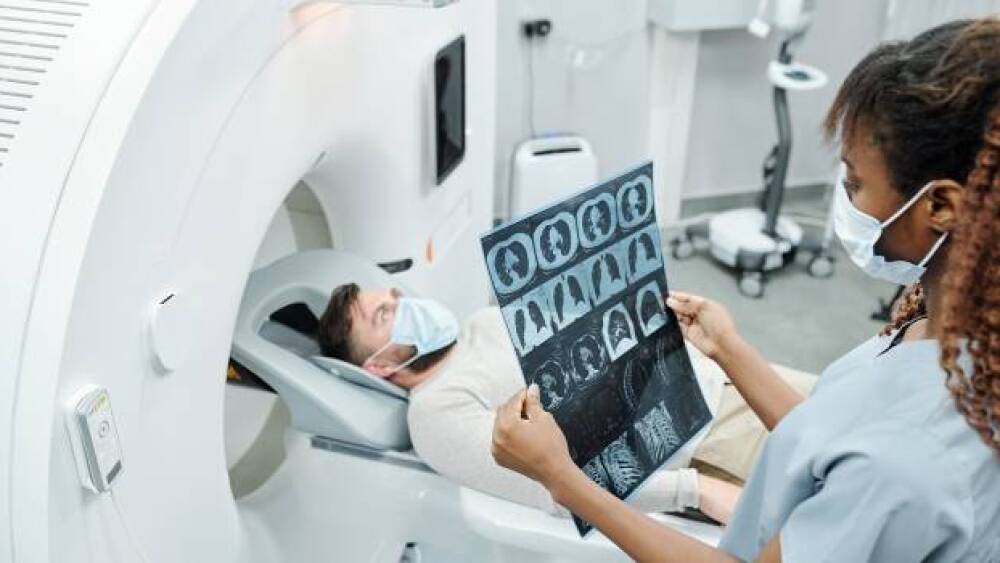A new market research report by InsightAce Analytic projects the immuno-oncology or cancer immunotherapy market will hit $34.69 billion by 2030.
A new market research report by InsightAce Analytic projects the immuno-oncology or cancer immunotherapy market will hit $34.69 billion by 2030. They value it at $7.20 billion in 2021.
Cancer immunotherapy has been in existence for less than a decade, somewhat dominated by the CAR T cell therapies in hematological cancers and checkpoint inhibitors. However, new approaches are being developed daily. The overall concept of immuno-oncology (IO) is to find ways to get the immune system to better attack cancer cells. Broadly, this is done in two ways, often together: use checkpoint inhibitors such as Merck’s Keytruda (pembrolizumab) to prevent the cancer cells from hiding from the immune system, or to supercharge the immune system to work better, such as with CAR T therapies.
The market is broad, with the report citing at least 36 different companies, including Agios Pharmaceutical, Novartis, Juno Therapeutics, Celgene Corporation, bluebird bio, Gilead Sciences and many others.
One problem with lumping IO all under one roof is how broad the modalities are becoming, including CAR T, NK and NKT cells, TAA/TSA targeted T cells, TCR T cells, cytokine-induced killer cells, dendritic cells, macrophages, and other cell therapies.
The Meticulous Blog cites 10 top IO companies, which largely match top international biopharma. It’s worth noting, however, that their No.10 is Celgene, which is now part of Bristol Myers Squibb.
- AstraZeneca. In 2021, the company reported Oncology sales of $13.66 billion, a growth of 19%. Its top oncology drugs include Imfinzi (durvalumab), Calquence (acalabrutinib), Lynparza (Olaparib), Tagrisso (Osimertinib) and Enhertu (fam-trastuzumab deruxtecan).
- Amgen. Last year, Amgen reported total yearly revenue of $26 billion but didn’t break out oncology specifically. Its hematology-oncology portfolio includes Lumakras/Lumykras (sotorasib), Kyprolis (carfilzomib), Xgeva (denosumab), Vectibix (panitumumab), Nplate (romiplostim), Blyncyto (blinatumomab), Mvasi and Kanjinti (trastuzumab-anns).
- Bristol Myers Squibb. BMS has two leading checkpoint inhibitors on the market, Opdivo and Yervoy. In 2021, BMS brought in $46.4 billion. They stated that they had $12.0 billion in revenues for the fourth quarter, an increase of 8%, with sales driven by Eliquis, their immuno-oncology and new product portfolios. Opdivo brought in $1.988 billion for the fourth quarter and Yervoy brought in $545. When BMS acquired Celgene, which was finalized in 2019, they created enormous depth in their oncology and hematology pipeline and portfolio.
- Eli Lilly. With overall revenue of $28.3 billion in 2021, Lilly’s cancer drugs include Alimta (pemetrexed), Cyramza (ramucirumab), Erbitux (cetuximab), Gemzar (gemcitabine), Portrazza (necitumumab), Retevmo (selpercatinib) and Verzenio (abemaciclib). In 2019, Lilly acquired Loxo Oncology for about $8.0 billion.
- Johnson & Johnson. J&J’s pharmacology division has six primary therapeutic areas: immunology, infectious diseases, oncology, neurosciences, pulmonary hypertension, and cardiovascular and metabolic diseases. Its leading cancer drug include Balversa (erdafitinib), Caelyx (doxorubicin hydrochloride), Dacogen (decitabine) and many others.
- Merck & Co. You really can’t talk about immuno-oncology or oncology without discussing Merck’s blockbuster checkpoint inhibitor Keytruda. Sales of the drug grew 20% to $17.2 billion in 2021. The drug is involved in more than 1000 clinical studies alone or with other cancer drugs around the world and seemingly not a week goes by without either a clinical trial announcement or approval for a new indication. The company’s year-end financial report noted it had been approved in Europe for adjuvant treatment of certain patients with renal cell carcinoma (RCC), for adjuvant treatment of adult and children with stage IIB or IIC melanoma after complete resection, approved in Japan in combination with chemotherapy for first-line treatment of patients with radially unresectable, advanced or recurrent esophageal carcinoma, and several other approvals. The company indicated that for its oncology portfolio, it is expecting more than 90 potential new indications by 2028, driven by Keytruda, Lynparza (Olaparib), Lenvima (Lenvatinib mesylate), and Welireg (belzutifan) and several drugs it is co-developing with AstraZeneca and Eisai Co.
- Novartis. In 2021, the company reported oncology sales grew 3% with the strong performance from Kisqali (ribociclib), Tafinlar + Mekinist, Promact/Revolade (eltrombopag) and Jakavi. Other cancer products include Adakveo (crizanlizumab), Afinitor (everolimus), Gleevec (imatinib mesylate), Kymriah (tisagenlecleucel) and many others. Kymriah is a CAR T therapy approved for r/r diffuse large B-cell lymphoma (DLBCL) and r/r acute lymphoblastic leukemia (ALL).
- Pfizer. In 2021, Pfizer reported oncology revenues of $12.3 billion, a 13% increase from the year before. In August 2021, Pfizer acquired Trillium Therapeutics, an immuno-oncology company, for $2.2 6 billion. Trillium’s two lead compounds were TTI-622 and TTI-621, potential best-in-class SIRPalpha-Fc fusion proteins being developed across several indications focusing on hematological cancers. Otherwise, the company’s cancer portfolio is very large, including Aromasin (exemestane), Bavencio (avelumab), Ibrance (Palbociclib) and many others.
- Roche/Genentech. Swiss-based Roche has a significant presence in oncology, particularly with its California-based Genentech. Its oncology drugs include checkpoint inhibitor Tecentriq (atezolizumab), Alecensa (alectinib), Cotellic (cobimetinib), Gavreto (pralsetinib), Venclexta (venetoclax) and others.
With these experimental therapies featuring in thousands of trials and established trailblazers like Keytruda reeling in the dollars, this estimate seems just about on-target.





